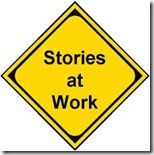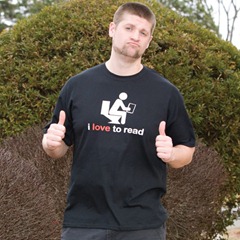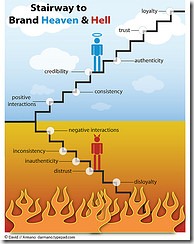June 7, 2011 Marketing yourself No Comments
by Diane Holmes, Marketing-Zone: Marketing Yourself and Your Book
This is the fourth in a series on Author Branding. Previous articles include:
1. Author Branding vs. an Army of Writers
2. The Author’s Branding Manifesto
3. The Gleam in Your Author Brand (Brand Building Technique #1)
—-
The branding, marketing, and blogging world is all atwitter with the idea of storytelling as a way of communicating brand. This isn’t a new idea.
Look at non-fiction books. Many of these authors have personal stories that directly led to the creation of the content in that book. The passion for the topic has a personal meaning to the author and a place in his or her life-narrative.
That’s story, my friend!
Fiction writers, on the other hand, don’t usually have the same luxury of “my personal story” led to “this story about solving crimes in a New England town.”
What goes into Your Personal Story… if you don’t have one?
We’re used to a “Story that Sells” coming from the facts of someone’s life, the WHAT HAPPENED. But there are some other ways of looking at story that may be even more helpful.
Brand Building Technique #2:Your Story Is More Than Events and Facts
Check out these alternative ways to uncover your story. Click the links for great resources.
- Why you do what you do?
- Who are you AS you do what you do?
- How to you approach and experience what you do? What would your readers enjoy being told about the “thing” that brings you together (your writing)?
- How does your story relate to something your readers know and care about? What do you share in common? (Click here to read a great example of this under the header of “welcome”)
- How do you influence and change lives?
- What dreams and hardships do you explore or share in common with your reader?
In your writing and your life, there is something that speaks to you, and that same thing speaks to your reader. Make that your story.
It already brings you together. Name it. Tell it. Be it.
.—
 Diane writes two columns for Freelance-Zone: Fiction-Zone: Leaps in Fiction Mastery and Marketing-Zone:Marketing-Zone: Marketing Yourself and Your Book.
Diane writes two columns for Freelance-Zone: Fiction-Zone: Leaps in Fiction Mastery and Marketing-Zone:Marketing-Zone: Marketing Yourself and Your Book.
She’s the Founder and Chief Alchemist of Pitch University – “Learn to pitch your book from the AGENTS and EDITORS who make their living at it. Learn. Pitch. Sell.”





